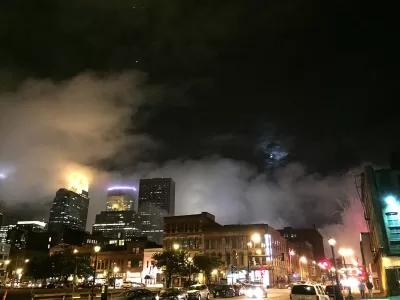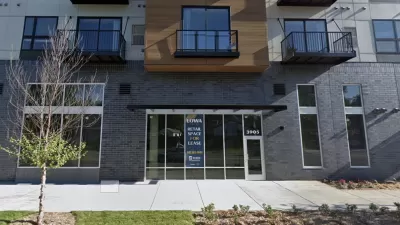The city’s "7-acre rule" limited liquor licenses to restaurants in a commercial zone, but a repeal of the ordinance last year means that restaurants across the city can now apply to serve liquor.

Many more Minneapolis restaurants can apply for liquor licenses after a change in the city’s charter. Previously, only restaurants located within a seven-acre commercially zoned area could serve liquor, which limited other establishments to offering only wine and beer to patrons.
Last November, 72 percent of voters supported repeal of the spacing restrictions. City officials report that so far 10 restaurants have applied for licenses and another 60 are eligible. They expect the number of license applications to increase in the spring when liquor licenses are up for renewal.
The change could encourage more restaurants to open in residential parts of the city. Past concerns from residents about liquor licenses have focused mainly on noise and parking, and city leaders want to facilitate community forums to address these issues.
FULL STORY: Liquor: Coming soon to a Minneapolis neighborhood restaurant near you

Study: Maui’s Plan to Convert Vacation Rentals to Long-Term Housing Could Cause Nearly $1 Billion Economic Loss
The plan would reduce visitor accommodation by 25,% resulting in 1,900 jobs lost.

North Texas Transit Leaders Tout Benefits of TOD for Growing Region
At a summit focused on transit-oriented development, policymakers discussed how North Texas’ expanded light rail system can serve as a tool for economic growth.

Why Should We Subsidize Public Transportation?
Many public transit agencies face financial stress due to rising costs, declining fare revenue, and declining subsidies. Transit advocates must provide a strong business case for increasing public transit funding.

How to Make US Trains Faster
Changes to boarding platforms and a switch to electric trains could improve U.S. passenger rail service without the added cost of high-speed rail.

Columbia’s Revitalized ‘Loop’ Is a Hub for Local Entrepreneurs
A focus on small businesses is helping a commercial corridor in Columbia, Missouri thrive.

Invasive Insect Threatens Minnesota’s Ash Forests
The Emerald Ash Borer is a rapidly spreading invasive pest threatening Minnesota’s ash trees, and homeowners are encouraged to plant diverse replacement species, avoid moving ash firewood, and monitor for signs of infestation.
Urban Design for Planners 1: Software Tools
This six-course series explores essential urban design concepts using open source software and equips planners with the tools they need to participate fully in the urban design process.
Planning for Universal Design
Learn the tools for implementing Universal Design in planning regulations.
City of Santa Clarita
Ascent Environmental
Institute for Housing and Urban Development Studies (IHS)
City of Grandview
Harvard GSD Executive Education
Toledo-Lucas County Plan Commissions
Salt Lake City
NYU Wagner Graduate School of Public Service





























